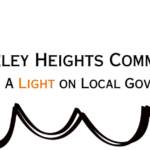
Community Responds to Berkeley Heights’ Misrepresentation of NYT Article
February 12, 2024
100 Men Celebrate Trenton Students
February 13, 2024Let’s Get Real About New Jersey’s Teacher Shortage
There is much talk about New Jersey’s teacher shortage and, indeed, there is cause for concern. Currently we have 2,000 teachers less than we did pre-pandemic: In the school year 2019-2020, we had 98,000 full-time K-12 educators but now we have 96,000. Just today, the spokesman for NJEA, the teachers union, cited “the severe staff staffing crisis in our schools.”
Yet we lose important nuance when we panic. Is New Jersey an outlier in America? Can we quantify what we mean by a “shortage”? Are there mitigating factors we’re missing? And how can we balance the educational needs of our children, especially those most affected by the pandemic, with fiscal realism?
First, Other states have it far worse; we have the seventh lowest teacher shortage in the country.
Second, we don’t really know how big or small our teacher shortage is because we have no reliable data. From NJ Monitor:
“The full scale of New Jersey’s teacher shortage remains unknown. It’s unclear whether the Department of Education ever completed a statutorily required annual report on teacher retention that was first due in mid-2022.”
And things are looking up for teacher retention. According to a new survey by RAND, “teachers reported better well-being in January 2023 than in 2021 and 2022, and rates of job-related stress have returned to pre-pandemic levels.”
Third, there is the one-time massive federal infusion of cash (known as ESSER) that will dry up in the beginning of school year 2024-25. When that money started rolling in in 2021, districts went on hiring sprees; Newark Public Schools alone got almost $300 million. This was in spite of warnings by experts, like those at Georgetown University’s Edunomics Lab, which told districts once the money dries up next year, schools won’t be able to meet payroll. (Edunomics projects U.S. districts will need to lay off 250,000 teachers when the ESSER well runs dry.) Never mind: According to the National Bureau of Labor Statistics, last year schools across the U.S. added 160,000 teaching positions.
In other words, our teaching corps was artificially inflated because we had so much money to burn. Our current student:teacher ratio is unsustainable unless Jack comes down the beanstalk with a golden goose.
Can states pick up the slack for the loss of emergency funds? Gov. Phil Murphy’s 2023-24 budget allotted about $11 billion for K-12 state aid costs, and he’s promised more money this year, although it’s unclear how much of it will be devoted to pension costs. (Murphy will announce his 2025 budget at the end of the month.) NJ Spotlight News budget and finance writer John Reitmeyer says a financial crunch is coming: “The state had been in this circumstance where it had a lot of extra money flying around for things like boosting pension payments and increasing K- 12 school aid funding,” he said. “Now, we may be in a little tighter environment.”
Fourth, student enrollment nationwide is lower than it was. Chad Aldeman, formerly of Edunomics, writes, “student enrollment is down, with further declines on the horizon, which means staffing levels per student continue to fall.” In other words, we are going to need fewer teachers than we previously did and this trend will continue as birth rates decline. Aldeman also points out that public education has the lowest job opening rate of all industries.
My colleague Beth Hawkins calls this environment the “one-two punch of the end of COVID recovery aid and enrollment losses.”
Over the last ten years in New Jersey, public K-12 enrollment has shrunk by 2.8%, about 38,000 students. Also, NJ’s birth rate is down (as it is all over); the number of NJ children under the age of five has fallen by 7.2% over the last decade. Across the state there are variations, with some districts showing stable or even increased enrollment. But in some counties school enrollment is down by as much as 10.8%
Here is what we know: We have teacher shortages in specific fields like STEM, special education, and teachers for English Language Learners. Those shortages were present pre-pandemic and we’ve failed to grapple with them. Save the pipedream of another K-12 federal handout (NJ got $2.8 billion all in) what are some steps New Jersey could take to alleviate these shortages?
- Raise salaries for teachers in those hard-to-fill positions, i.e., differentiate salaries based on demand. (Non-starter with NJEA executives but do they want to fix this or not?)
- Stop laying off teachers in order of seniority, also know as LIFO, or “last in, first out.” We lose some of our most effective teachers when the only criterion for lay-offs is how many years a teacher has been employed.
- Provide meaningful bonuses for teachers who work in our neediest districts.
- Make teacher certification reciprocal from other states. Why is certification from Massachusetts—the top state school system in the nation—unacceptable here?
- Change the law so a teacher living in Pennsylvania or New York can work in NJ. (There is a bill that would allow teachers to do so for three years that passed the Senate but is stuck in the Assembly.)
- Grant aspiring teachers vouchers to pay for certification costs, at least in hard-to-fill fields.
Wouldn’t implementation of some of these reforms be more useful than hand-wringing?





5 Comments
The recommendations listed are really quite good, but because of that, they won’t be implemented. The DOE doesn’t run on logic.
You have submitted saving-grace solutions to the problem, Ms. Waters. Any and all should work, but is anyone in DOE paying attention? Perhaps this is something that the new commissioner might consider. Fingers crossed …
Reasonable argument for school choice. The NJEA is not willing to change. Everything is a process and nothing gets done. Very unfortunate commentary. What a needless self inflicting crisis. This is exactly why the Charter School movement became a reality almost 30 years ago in New Jersey.
NJEA will not make any allowance for any quality suggestions. It will not accept any sensible solutions. It is tied to NJCTL, and NJCTL is the only option that the NJDOE and the certification office will promote for the sake of the teacher shortage. Who at the NJDOE has a hand in the kickback cookie jar? Who initiated the absurd NJCTL agreement and who is allowing it to continue? Those are the big questions and concerns. Such needs to be addressed, and so Kevin Dehmer, what do you say? Are you willing to get to the bottom of this or would you prefer to wallow in the ineffective shadows like those before you?
Direct from NJCTL website: “NJCTL IS A NONPROFIT FOUNDED BY THE NJEA IN 2007; a top producer of teachers and resources needed to provide ALL students access to K-12 & AP science , mathematics and computer science: and an authorized New Jersey Intuition of Higher Education.”
A basic instinct for self- preservation. A way to continue having complete control over a process. What better way – be the founders of your own non-profit. The webs weaved are unraveling. Sounds like Mr. Dehmer has a job that is going to take a lot of guts. We can no longer get away with saying we are the envy of the nation. This is ridiculous.